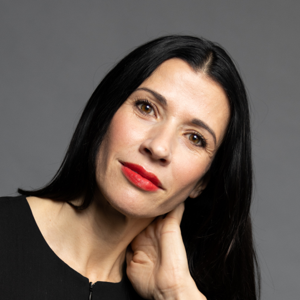Building tomorrow, one penny at a time.
Investing in seed founders using AI to reimagine how the real world works.
Leveraging our collective access, influence, and reach to drop pennies in the jar.
Hear from our founders
"Right after investing, Rich completely rebuilt our financial model. It brought clarity to a complex business with many moving parts and allowed me to operate with more precision and confidence during critical moments early in the company’s history."


"Rich made a customer introduction and stayed closely involved behind the scenes—back-channeling, problem-solving, and keeping momentum until the partnership came together. Penny Jar doesn’t just make introductions; they make outcomes happen."


“Early customers are everything. Bryant’s introduction to a security executive turned into a full customer relationship for Upwind—proof of how valuable the right connection can be.”


“Bryant spent months helping us interview CEO candidates, offering both a thoughtful perspective and transparency. His involvement gave candidates more confidence in the opportunity and helped us close our new CEO.”


“Penny Jar connected us with the right partner to get our website, brand, and logo off the ground. It was a huge relief that let us focus on building our product and the business.”


“Rich helped us with multiple critical hires. He interviewed several of our engineering candidates and struck the perfect balance between evaluating fit and selling the role, which made a huge difference in closing each of them.”


“Stephen came to our office for a fireside chat with the team, and it was incredible. Hearing him talk about leadership, culture, and teamwork was both inspiring and energizing for everyone at Local Kitchens.”


“Bryant connected me into a podcast opportunity that gave Local Kitchens real exposure with a highly relevant audience. It was a chance to tell our story on a platform that mattered.”


“Rich opened a door for HiveWatch in Wisconsin that became one of our largest customers at the time. Penny Jar's network stretches wide and deep, even in unconventional places.”


“What stood out was Penny Jar’s willingness to jump in as one of our first real users. They weren’t just giving investor feedback—they were in the trenches with us, flagging bugs, stress-testing features, and helping validate the product in ways that shaped where we took it next.”


“Penny Jar's connections at OpenAI provided Burnt with early access to model usage and credibility, which directly bolstered our product and helped us stay ahead of the curve.”


“Rich hosted a dinner with cybersecurity leaders in the Midwest, with Penny Jar Collective members acting as catalysts for introductions and credibility. That single evening led to three multi-year customer wins for Zafran.”


“The Penny Jar Collective came through in a big way, introducing us to a senior leader who helped shape and lead one of our AI customer roundtables. It was a real example of their network adding immediate value.”


“Rich joined us on our podcast to talk about the fundraising environment. It was not only great content, but it also reinforced the narrative we’re bringing to market.”


“What I value most about Rich is his consistency and responsiveness. He’s someone I can turn to again and again to talk through tough topics across fundraising, product, GTM, and everything else. You name it, he's always available to be a thoughtful sounding board.”


“We've landed new customers thanks to our partnership with Penny Jar Capital. Stephen and Bryant hosted an event at a Warriors game, sparking new relationships, driving revenue, and growing our market relevance and reputation.”


“Penny Jar didn’t just invest—they built an MVP on top of our product and have been actively using it to power some of their own internal tools. Rich has gone deep as both a technical user and a customer, providing us with consistent, detailed feedback that is valuable as we refine Ducky.”


“Penny Jar provided us with dedicated support for our funding announcement; their contact helped shape our narrative and strategy, and secured press, giving Parallel a strong start to our story.”


“We hit a big customer milestone, and Penny Jar made it even more special with a signed Stephen jersey and video for the team. It’s moments like that, when Bryant walks in your office with something small but meaningful, where you really feel the partnership.”


“Bryant built a relationship with a senior leader at a global brand and made the introduction to us. That connection ultimately became one of tokenproof’s largest revenue customers at the time.”


“Bryant challenged us to rethink our approach to product building and market needs. Through that back-and-forth, our team gained the conviction to pivot, and now we’re seeing real market pull and excitement around what we’re building.”


"Stephen’s podcast shined a light on Syndio’s mission and brought powerful visibility to our work. Penny Jar has been deeply involved in shaping our story—helping us evolve the conversation from pay equity to how companies make faster, fairer decisions with AI."


"Penny Jar's introductions to two executives at a key potential customer directly impacted our sales strategy, opening partnership opportunities and informing our product expansion. Their targeted support and commitment to our success provide a huge lift that we don't get from many other investors."

